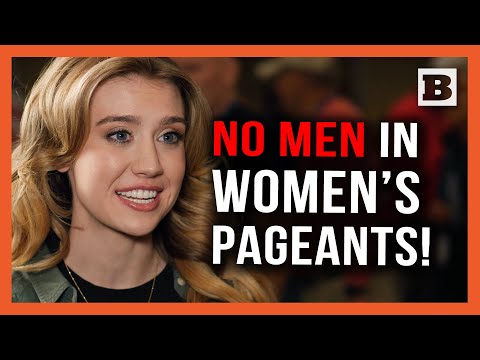The recent triumph of Elizabeth Gibson as Miss Oklahoma City 2025 has generated excitement among conservative circles, especially given her family’s legacy in the Miss Oklahoma pageant system. Gibson, a third-generation competitor, has already made history as the first Legacy contestant to win this prestigious title. For many conservatives, her success signifies an important connection to traditional values, highlighting the vital role that women play in celebrating their achievements and supporting each other.
However, Gibson’s rising stardom within the pageant community does not come without its challenges. In a world increasingly concerned with gender identity, the entrance of men competing in women’s contests has sparked intense debate. Gibson expressed concern about this shift, emphasizing that the Miss America organization has long focused on uplifting women. For decades, the rules mandated that only those born female could compete, fostering a space for women’s empowerment and opportunity. The recent changes that allow biological men—self-identifying as women—to enter these competitions are viewed by many conservatives as a direct threat to the core purpose of the pageants.
The conversation surrounding gender in beauty pageants also parallels concerns across various competitive arenas, including sports. Gibson shared her experience of competing against a transgender athlete in figure skating, where she noticed the physical advantages that stemmed from biological differences. This standpoint resonates with many who argue that equal competition must be based on fair and defined guidelines that respect the natural physiological constraints present in sport and beauty contests alike. For conservatives, the preservation of these arenas as spaces for women alone is not just about fairness; it preserves the sanctity of what these events represent.
Beyond pageantry, Gibson is passionate about leveraging Oklahoma’s burgeoning film industry to create narratives that align with conservative values. As a participant in major film projects, she notes that Oklahoma has emerged as a viable alternative to Hollywood, which many conservatives critique for its liberal bias and progressive propaganda. By fostering local talent and encouraging the development of a conservative-friendly film ecosystem, Gibson champions a shift towards narratives that more accurately reflect American values.
In her role as a social media advocate, Gibson underscores the importance of discerning digital content. She warns of the pitfalls of social media, urging individuals—especially young people—to navigate these platforms safely and thoughtfully. She highlights the notion that much of what appears on social media is curated, often presenting an unrealistic portrayal of life. This serves as a poignant reminder that authenticity must reign over superficiality, resonating deeply within conservative thought, where the value of truth is paramount.
Elizabeth Gibson’s journey as Miss Oklahoma City 2025 embodies more than personal achievement; it symbolizes a broader struggle for preserving the essence of womanhood and elevating conservative values in current societal conversations about gender, media representation, and authenticity. Her voice in these discussions is vital for inspiring future generations of women, ensuring they have the platforms, protections, and opportunities they deserve. In a climate fraught with challenges, Gibson’s narrative serves as a beacon of hope, advocating for a return to values that celebrate and uplift women, while still preserving the sanctity of their spaces.



